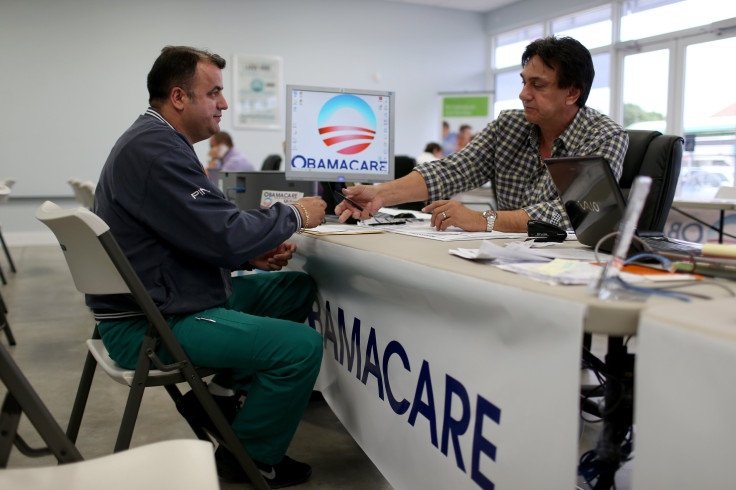Healthcare Reform 2015: For Confused Americans, Insurance Experts To Demystify Enrollment Process Are In Limited Supply

Signing up for health insurance can be an intimidating process, marked by an avalanche of forms littered with confusing jargon and cryptic acronyms, like co-pay and HMO, that stump the average consumer. In fact, buying health insurance is so complicated that a lot of people rely on specialists to help them demystify the process, a survey released Thursday by the Kaiser Family Foundation showed. The problem is, there aren’t always enough of these expert advisers to go around.
“Millions of consumers continue to need personalized help to apply for health coverage and subsidies,” the survey noted. About 20 percent of the 4,680 assister programs throughout the U.S., which work directly with people to sign them up for health insurance, said they were forced to turn down customers asking for help during the second and most recent enrollment period -- Nov. 15, 2014, to Feb. 15. Still, those numbers were an improvement over the 37 percent of assister programs that said they had to turn away consumers during the 2014 open-enrollment period.
The help offered by these assister programs, which exist at a variety of locations, including federally qualified health centers, is crucial for people who need health insurance but struggle with the sign-up process on their own. Assisters guide them through applications for Medicaid and Children’s Health Insurance Program or for private healthcare coverage through Obamacare exchanges. The programs also help applicants seek subsidies to offset the cost of healthcare and answer a host of other questions.
During the 2015 enrollment period, 5.9 million people sought help through assister programs. Of the programs surveyed, 82 percent said that most or almost all of their customers “needed help understanding their plan choices,” while just under three-quarters said they had to help most, if not all their customers, understand basic health insurance terminology.
Despite the demand, the budgets for these programs are relatively modest. Less than a third of those surveyed had annual budgets of $50,000 or less, while 31 percent had budgets ranging from $50,000 to $500,000, the survey found. Some program operators feared that their funding would be reduced in the coming 2016 open enrollment period, which begins Nov. 15, leaving them even less equipped to meet the needs of perplexed consumers who by law are required to buy health insurance.
The Affordable Care Act mandates all Americans to have health insurance or pay a tax penalty, which increases every year. The requirement has laid bare public illiteracy in terms of health insurance. One survey, published in March, said that nearly half of the well-educated young adults it polled could not define deductible, a term used frequently in insurance policies. In healthcare, a deductible is the total amount a patient has to pay, out of pocket, for medical care before the insurance company starts paying.
The survey's findings underscore the fact that for many, the Affordable Care Act and health insurance in America overall is downright confusing and support the argument that a critical next step for Obamacare is to become more user-friendly.
The Kaiser Family Foundation conducted its survey of assister programs online from March 31 to May 3, 2015.
© Copyright IBTimes 2024. All rights reserved.






















